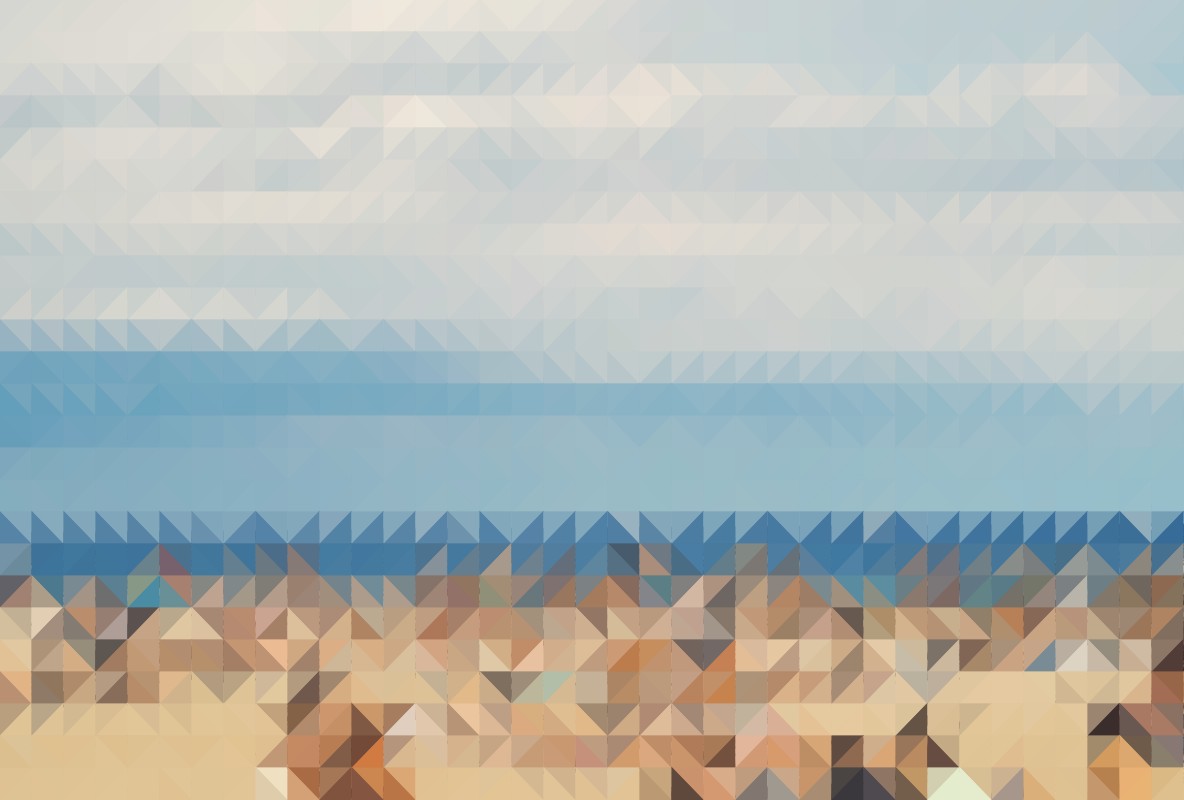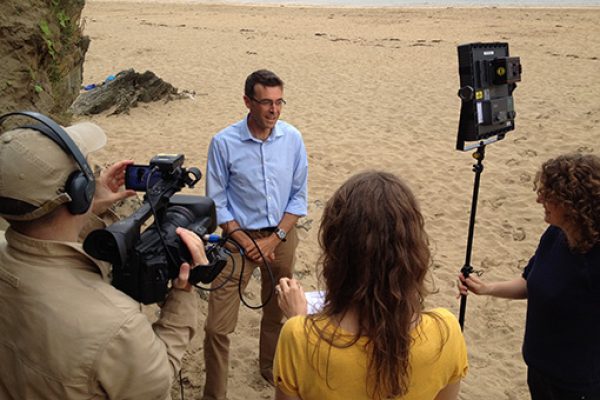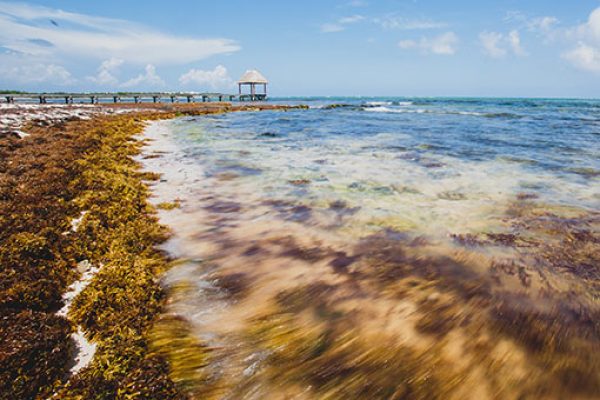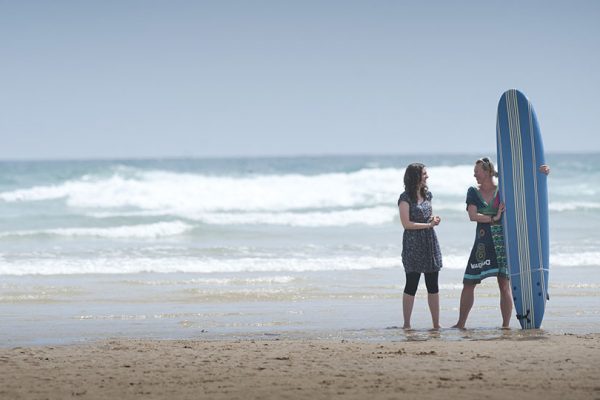Reflections on oceans and human health
As humans slowly wake up to their dependence on a healthy natural environment, Professor Lora Fleming reflects on a research career spanning over 30 years, and ponders where we go next.
Whilst I trained and practiced as a physician in the US, I had always held a deep connection with the natural environment. This personal passion became professional after studying for a doctorate in environmental epidemiology, and I’ve never looked back.
Epidemiology is a discipline that tries to look for the patterns and causes of disease by using large sets of data. But early on in my career, I realised that when thinking about the natural environment, this implied a one-way relationship:
What was the environment doing to us?
The answer was often spreading disease through vectors like mosquitos, poisoning our food with toxins like ciguatera, or causing deaths through extreme weather events. The impacts were always negative, and often depicted the natural environment as a source of hazards that needed to be controlled and mitigated.
I knew there had to be more to this relationship and whilst working at the University of Miami, I began to refine my focus to look at the burgeoning area of oceans and health. The complexity was clear: Here was a huge natural resource that provided food, supported industry, facilitated recreational activities, yet could also kill.
These intricately intertwined connections demanded an interdisciplinary approach, and as a result, my work in the area of oceans and health has been constantly varied and fascinating.
I have learned about ‘pico bacteria’ and ‘marine snow’ – the tiniest organisms in the ocean. I’ve worked with colleagues who use remote sensing to measure ocean temperature from orbiting satellites, and studied how organisms and chemicals in the oceans cause sickness through contaminated seafood. But perhaps most significant of all, I’ve had the opportunity to listen to people describe their love for the ocean and its importance to their cultures, livelihoods, and families.
These experiences have shaped my research, and over the last ten years I’ve been part of a growing group of scientists who are uncovering evidence that suggests interacting with the oceans, coasts, and other ‘blue’ environments can lead to important benefits in physical and mental wellbeing.
Whilst this might sound obvious to those who regularly spend time near or in the water, until recently we had very little research which systematically identified the potential health benefits of these environments – and we’re only really getting started.
Thankfully, in the light of environmental and societal pressures, policy makers across Europe are now taking the area of oceans and human health seriously. My team and I are currently leading two large pan-European research projects, BlueHealth and SOPHIE, which are helping us to understand how to maximise the wellbeing benefits of ‘blue’ spaces across different cultures and societies – while still taking into account the risks. These kinds of projects are vital if we are to convince governments to protect, create and encourage the use of these spaces.
All that I have learned over the past 30 years of researching, teaching, and listening has changed my own relationship with blue environments. I value them more, I am more aware of how fragile and complex THEIR health is, and how bad we are at looking after them.
And so I also worry.
Worry that we will only realise the value of these spaces and the negative impacts of our actions when it is too late.
But I also have hope. For many years, I have regularly visited my family’s house in Maine in the US. Located right next to a tidal river, it is constantly changing. The flow of the water, the sounds and uses of the waterways, the flora, fauna and weather vary over the seasons and years, but the beauty and peace are a constant. Although there are many fewer fish and seals now, the bald eagle has actually returned to this area during my lifetime.
This gives me hope that humans can realise and understand the importance of the natural environment before it is too late. And I hope that the work of my group can help us to live better with the natural environment locally and globally, and appreciate not only their beauty but also our total interdependence.
Professor Lora Fleming is a board certified occupational and environmental health physician and epidemiologist. She is Chair of Oceans, Epidemiology and Human Health at the University of Exeter and Director of the European Centre for Environment and Human Health. Lora is also Emerita Professor at the Miller School of Medicine and the Rosenstiel School of Marine and Atmospheric Sciences. In 2015 she was awarded the UNESCO Anton Bruun medal for outstanding work in oceans and health.




